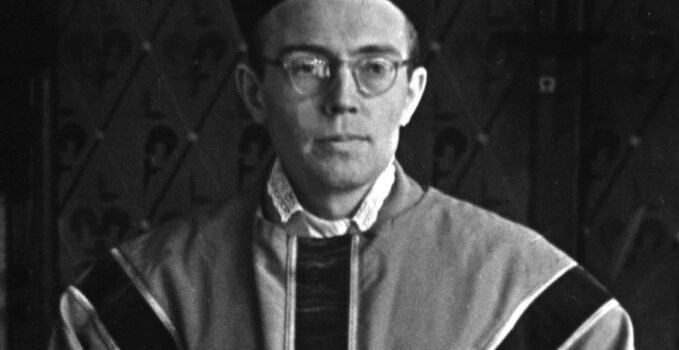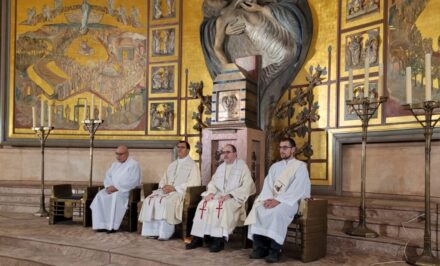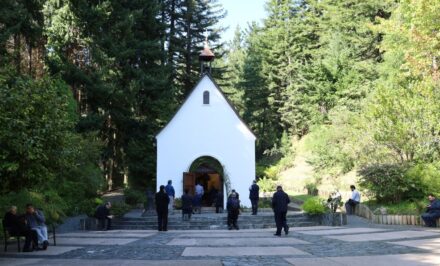GERMANY, Press Office of the Archbishopric of Munich-Freising/Editorial Office •
“How much we long for priests who are ready for devotion, ready to give their lives”, Cardinal Reinhard Marx emphasized with regard to Blessed Karl Leisner, who 75 years ago, on December 17, 1944, was secretly ordained priest in the Dachau concentration camp by the Bishop of Clermont, Gabriel Piguet, who was also imprisoned there. Today it is also about reforms, “but at the core of the question is: Is a priest ready not only to read Mass, but to give himself in this Mass and to invite everyone to enter into this dynamic of God, which assumes to save the whole world, to heal all wounds”, added the Archbishop of Munich and Freising at a Eucharistic celebration in memory of Leisner on Sunday, December 22nd, in the monastery church of Carmel Heilig Blut in Dachau. He said that it was not the number of priests that mattered, but whether they were willing to take on this task in the following of Christ. —
At the beginning of the service Cardinal Marx Leisner described it as “a sign of hope, confidence, common prayer and the common church being, which works up to our time”. His ordination to the priesthood – the only one that was carried out in a concentration camp, and which was only made possible by the efforts and prayer of many – showed “that there is no place that has been abandoned by God”. Leisner stood for the many victims of hate and violence, above all for the Jewish people, but also for all those persecuted and killed by the National Socialists, The archbishop explained this in his sermon, Leisner stood “for the many who rose up against violence at that time.” Especially in today’s world, in which hatred and violence are again being expressed in words and deeds in this country, the example of Leisner calls for us not to overlook such developments, but to oppose them courageously. At the memorial service in the Carmel, Cardinal Marx carried the crosier that Piguet carried 75 years ago at the consecration of Leisner.

Photo: Wikipedia. Stamp issued in Germany in 2015
Leisner, who was born on February 28, 1915 in Rees on the Lower Rhine in the Diocese of Muenster and who belonged to the Schoenstatt Movement, had already been a deacon when he was arrested in 1939 for making a critical statement about the National Socialists and in 1940 he was taken first to the Sachsenhausen concentration camp and later to the concentration camp of Dachau. Bishop Piguet gave Leisner the sacrament there on the fourth Advent in the chapel in Block 26, where the new priest also celebrated his first and only Holy Mass on December 26, 1944. Josefa Mack, a 20-year-old student sister and postulant with the Poor School Sisters, had received the Holy Oils and other objects necessary for the consecration from the then Archbishop of Munich and Freising, Cardinal Michael Faulhaber, and smuggled them into the concentration camp. After the liberation of the concentration camp, Leisner, who had been seriously ill years before due to the deprivations during the Nazi persecution, was taken to the Lung Sanatorium of the Sisters of Mercy in Krailling in 1945. He died there on August 12, 1945, and a memorial to Leisner is located on the grounds of the Forest Sanatorium in Krailling. Pope John Paul II beatified him on June 23, 1996 in Berlin.

Photo: Wikipedia
In his hometown Xanten a solemn pontifical high mass was already held on December 15, 2019, the 3rd Advent (Sunday “Gaudete”), in memory of Leisner’s ordination to the priesthood 75 years ago (also on the 3rd Sunday of Advent).
In the German press the service in Dachau found strong resonance
Sueddeutsche (only available in German)
Domradio Koeln (only available in German)
Original: German 23.12.2019 Translation: Lindsay Burger, Ohio, USA














